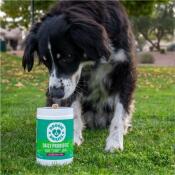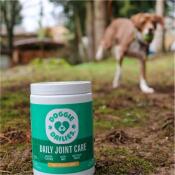German Shepherds are active dogs, and they need exercise and playtime to flourish. Daily walks or open play in fenced areas is ideal. You may even enjoy engaging your dog in activities like tracking, herding, dock diving, or agility.
Here are some exercises good for your German Shepherd.
-
Walking. If your dog is healthy and full of energy, walk them up to three times a day.
-
Running or Jogging. These are perfect to increase your dog's endurance. This works after the dog is at least 18 months old. Be wary of the surface you use. Dogs don't wear running shoes so stay away from rocky surfaces, uneven areas, and hot asphalt. Go running or jogging twice a week.
-
Spring Pole Training. The spring pole increases your dog's power and muscle mass. Not to mention that it's a fun exercise he will enjoy. This is ideal twice each week.
-
Weave Poles. These are another tool that maximizes endurance and agility. Start with a treat to show them how to maneuver through the poles. Practice until your dog can do it with no treat.
-
Doggy Squats. Just like in humans, squats increase mobility. They're fairly easy too!
How to do doggy squats:
Have your dog follow your sit command.
Then, have them stand.
Use treats to entice them to keep repeating the action.
After two weeks, increase the reps in healthy dogs (not puppies or seniors).
Have your dog start with 2 sets of 5 squats and add on from there.
Without exercise, your dog may face a variety of health issues like obesity, muscle atrophy, and joint issues.











